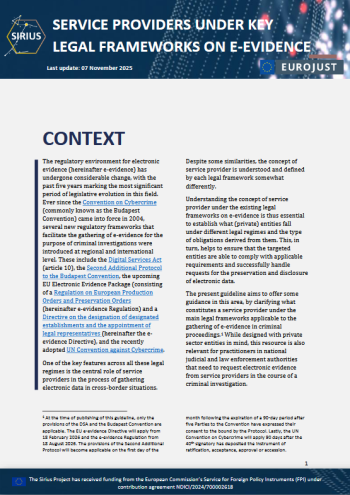
The legal landscape surrounding digital evidence has undergone significant change in recent years. Since the Convention on Cybercrime (the Budapest Convention) entered into force in 2004, several legislative frameworks have been introduced to facilitate the collection of electronic evidence in criminal proceedings. The most recent legislative initiative is the e-evidence package, consisting of two legal acts: the e-evidence Regulation and the e-evidence Directive.
Central to all the existing e-evidence regimes are service providers. Despite certain similarities, the notion of service provider is defined and understood somewhat differently across the various legal frameworks on e-evidence. This guideline aims to clarify the concept of service provider under the main legal frameworks governing the collection of electronic evidence in criminal proceedings. Although primarily designed for private sector entities, this resource is equally relevant for practitioners in judicial and law enforcement authorities.
The document was prepared within the framework of the SIRIUS Project. The Sirius Project has received funding from the European Commission’s Service for Foreign Policy Instruments (FPI) under contribution agreement NDICI/2024/700002618.
